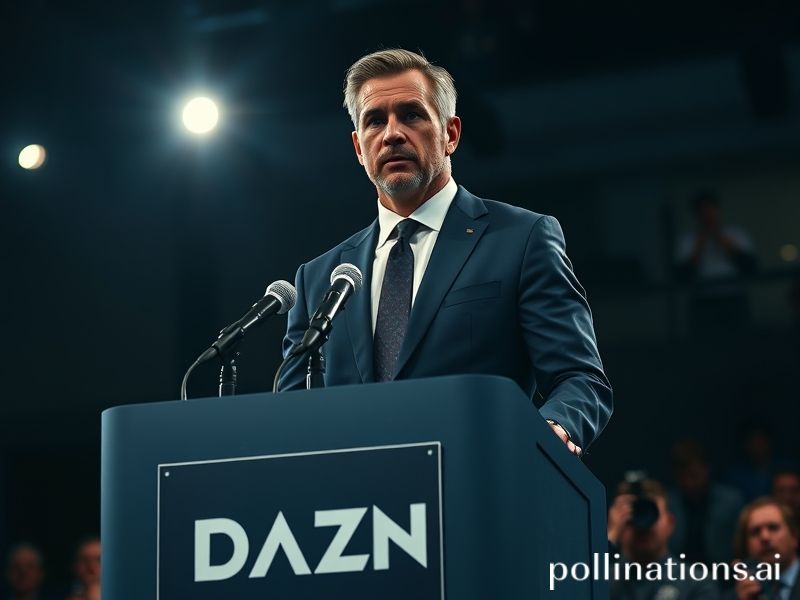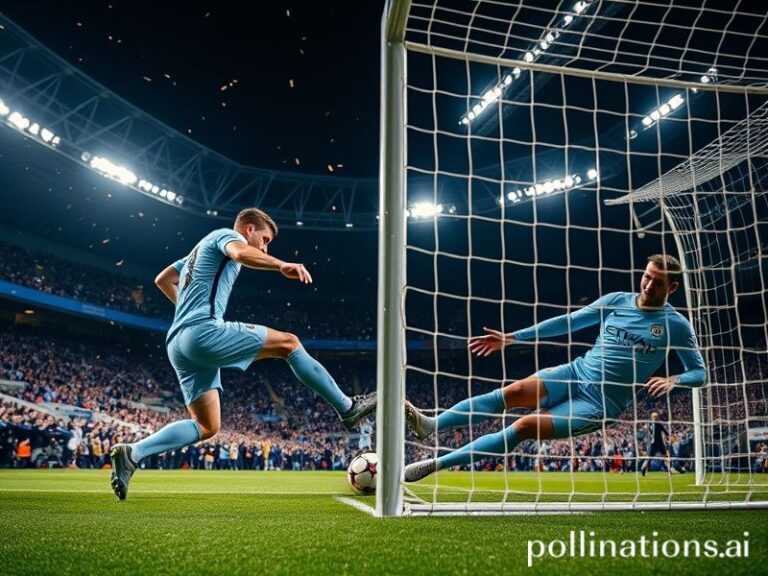Eddie Hearn: The Accidental Diplomat Who Turned Boxing Rings into Global Chessboards
The Global Ripple Effect of Eddie Hearn: How One British Promoter Became Boxing’s Reluctant Geopolitician
By C. Lang, International Correspondent, Dave’s Locker
There was a time when the most explosive thing a boxing promoter could detonate was a fighter’s ego. Enter Eddie Hearn—Essex-born, Instagram-polished, and fluent in the universal language of the pay-per-view hard sell—who has since turned prizefight matchmaking into a soft-power spectacle that would make the United Nations blush. From Riyadh to Riga, Hearn’s 4K cameras now hover like diplomatic drones, recording every grimace, every glistening torso, every whispered promise of “legacy” that sounds suspiciously like “licensing revenue.”
Hearn started small: a silver-spooned kid selling darts on Sky Sports, which is itself a sentence that explains modern Britain better than any census. But give a man a Bluetooth headset and a Gulf-state sovereign wealth fund and suddenly he’s rearranging the atlas. The Anthony Joshua–Andy Ruiz Jr. debacle in Diriyah? A desert mirage that convinced Saudi Arabia it could buy respectability the same way it buys Italian super-yachts—one mispriced underdog at a time. The rematch was staged under a purpose-built 15,000-seat air-conditioned tent, a structure so opulent it felt like the set of a Bond film where the villain’s master plan is to gentrify the Empty Quarter.
Global implications? Let’s tick the boxes. First, soft-power laundering: sportswash a human-rights record until it gleams like a freshly Vaselined heavyweight. Second, economic displacement: when Riyadh outbids Las Vegas for marquee fights, the Nevada desert keeps its fountains, but the local bartenders learn Arabic on Duolingo. Third, cultural osmosis: suddenly every undercard fighter from Tashkent to Tijuana dreams not of Madison Square Garden but of a floodlit plaza where the clocks are set to “whatever the prince says.”
Yet Hearn’s genius is to look perpetually surprised by his own success, like a man who went out for milk and accidentally annexed the dairy industry. Watch any press conference and you’ll see it: the half-smirk, the “we’re just putting on great fights, mate” shrug, while in the background the Saudi logo pulses like a neon confession. It’s an act, of course—Hearn is as calculating as a Swiss bank with anxiety—but the performance lets global audiences pretend they’re still watching sport rather than participating in a geopolitical trade expo.
Europe hasn’t taken the coup lying down. Eddie’s Matchroom Italy cards in Florence serve artisanal knockouts alongside truffle risotto, proving that even concussions can be Michelin-adjacent. Meanwhile, his nascent ventures in Africa—tentative talks for Lagos and Accra—promise to return heavyweight boxing to ancestral soil, assuming the local power grid stays awake past the national anthem. Each new continent is less a market than a moral Rubik’s Cube: twist the colors enough and eventually you’ll land on a justification that fits the broadcast slot.
The wider significance? Hearn has weaponized nostalgia while monetizing the future. He sells the myth of the “old-school throwdown” using algorithms that would confuse a Pentagon war room. One minute you’re watching two men promise to murder each other with Queensberry politeness; the next you’re served an in-app poll asking which brand of electrolyte water best captures your warrior spirit. The result is a planet-wide audience that cheers bloodsport on Saturday and signs up for wellness retreats on Sunday—cognitive dissonance sold as a two-for-one bundle.
And let’s spare a thought for the fighters: modern gladiators sponsored by crypto exchanges that may not exist by the final bell. Their contracts stipulate mandatory social-media posts, emoji quotas, and the eternal obligation to thank an energy-drink deity for “fueling my journey.” If Seneca were alive, he’d call it “amor fati with a hydration clause.”
In the end, Eddie Hearn hasn’t merely globalized boxing; he’s turned it into the last honest metaphor we have left—a brutal, glittering ledger where every punch is a balance-of-payments entry and every belt a borderless IOU. Somewhere in a luxury suite, a minister of sport adjusts his ghutra, taps his platinum watch, and asks when the heavyweight champion can drop by the palace for tea. Hearn checks his phone, smiles that practiced half-smile, and books the flight. After all, business is business, and diplomacy is just boxing without the blood—unless you count the fine print.







